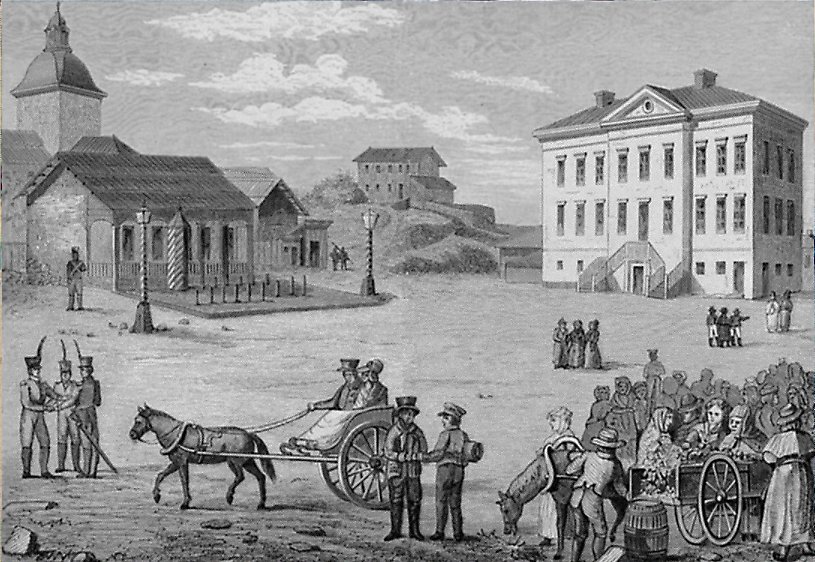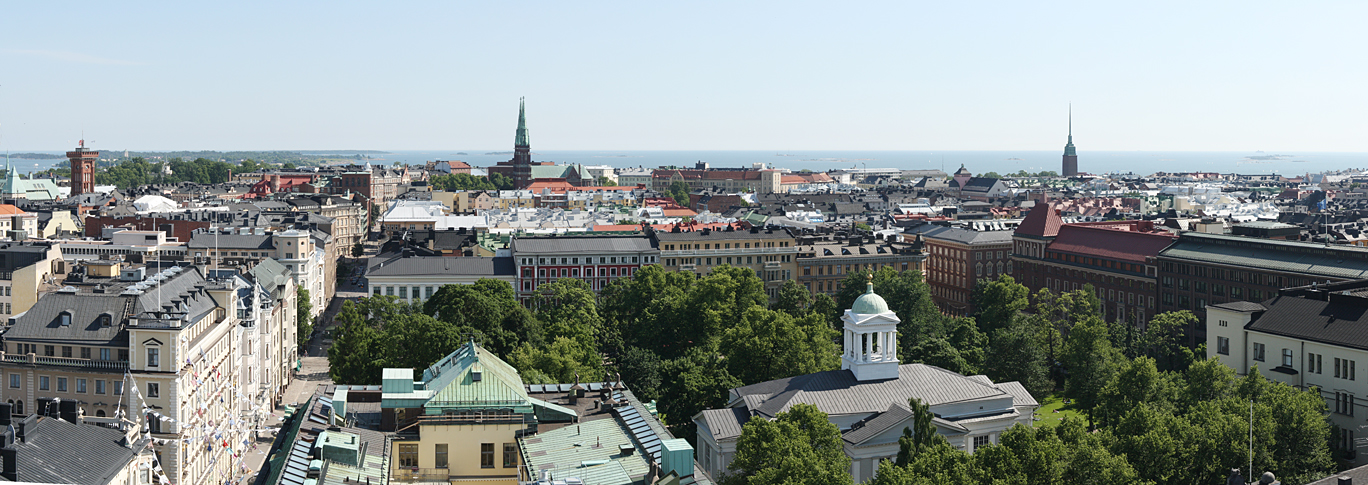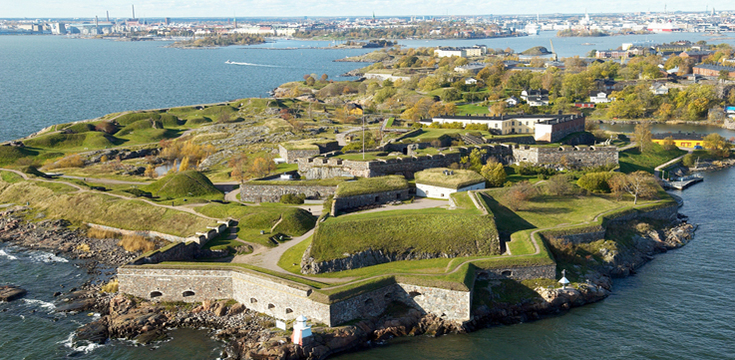June 12 in Swedish History
Sweden's King Gustav Vasa establishes what is to later become Finland's capital, Helsinki, in Swedish Helsingfors.
-
 On the 12th of June in 1550, Swedish King Gustav Vasa (1496-1560) establishes a town called Helsinki. It takes hundreds of years for it however to grow into the capital of Finland that we see today. Above a drawing by Carl Ludvig Engel from Helsinki University Library showing the City Hall Square of Helsinki in 1820.
On the 12th of June in 1550, Swedish King Gustav Vasa (1496-1560) establishes a town called Helsinki. It takes hundreds of years for it however to grow into the capital of Finland that we see today. Above a drawing by Carl Ludvig Engel from Helsinki University Library showing the City Hall Square of Helsinki in 1820. -
-
June 12 in Swedish History
1550: King Gustav Vasa of Sweden establishes the trading town Helsingfors (in Finnish and internationally known as Helsinki). Vasa intends it to rival the Hanseatic city of Reval (today’s Tallinn), and townsmen of nearby Borgå, Ekenäs, Raumo, and Ulvsby are forced to move into the new town. Unfortunately for Vasa, Helsinki remained a tiny town plagued by poverty, wars, and diseases (the 1710 plague killed the greater population of Helsinki). It’s not until the construction of the naval fortress Sveaborg in the 18th century, that Helsinki improves its status, and only in 1809, after Russia has defeated Sweden in the Finnish War and annexed Finland as the autonomous Grand Duchy of Finland, does Helsinki begin to develop into a substantial city. -
 A panoramic view over the southernmost districts of Helsinki from Hotel Torni. The Helsinki Old Church and its surrounding park are seen in the foreground, while the towers of St. John's Church (left of center) and Mikael Agricola Church (right) can be seen in the middle distance, backdropped by the Gulf of Finland. Photo: KFP/Creative Commons
A panoramic view over the southernmost districts of Helsinki from Hotel Torni. The Helsinki Old Church and its surrounding park are seen in the foreground, while the towers of St. John's Church (left of center) and Mikael Agricola Church (right) can be seen in the middle distance, backdropped by the Gulf of Finland. Photo: KFP/Creative Commons -
-
Åbo (or, in Finnish Turku), however, remains the capital of Finland until 1812, when the Russian tsar moves it to Helsinki.
-
 Suomenlinna / Sveaborg fortress in the harbor of Helsinki. www.suomenlinna.fi/en
Suomenlinna / Sveaborg fortress in the harbor of Helsinki. www.suomenlinna.fi/en -
Helsinki is Finland's largest city with a population of just over 600,000 in the city itself and 1.3 million in the metro area. (Finland, population: 5.4 million) A minority (6%) of the city's population still has Swedish as main language. For more info, see www.hel.fi/www/helsinki/en
-
More on Gustav Vasa, the King who's credited with having unified modern Sweden: The coronation of Gustav Vasa
-
-
